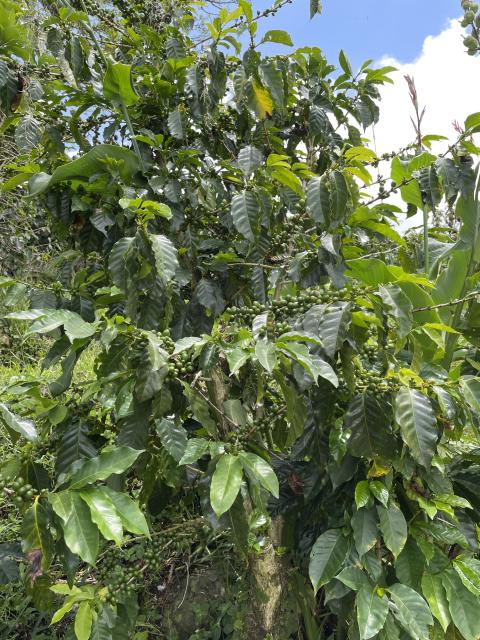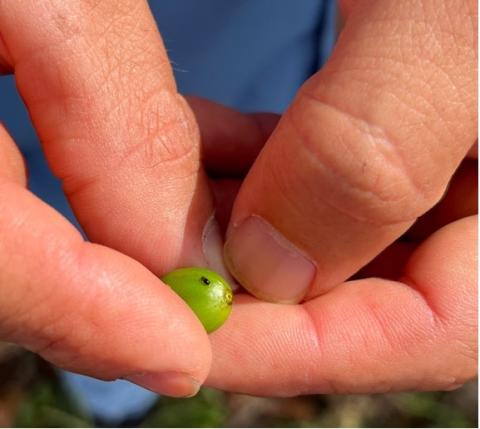The economics of interdependencies between people and environment

Stephanie, Katie (a co-author on the project), with their translator/guide and coffee producers; the producers are showing them around their coffee farm in Turriabla, Costa Rica
Dr. Stephanie Brockmann is an Assistant Professor in the Peter T. Paul College of Business and Economics whose research focuses on how interactions between people and the environment can create economic inefficiencies that produce negative impacts on sustainability. In spring of 2023, Brockmann received funding through the UNH Sustainability Awards program which supported a fieldwork trip to Costa Rica to conduct research on the sustainable production of coffee and similar products within agroforestry systems. During the trip, Brockmann, engaged with stakeholders, visited farms, and directly engaged with farmers to learn about their decision-making processes and what constraints and barriers exist with respect to use of sustainable production techniques (e.g., time, money, knowledge), especially amid climate stressors, pest infestations, and plant diseases.
What keeps you excited and hopeful about sustainability in your work?

A close look at a coffee bush.
What is most exciting to me about sustainability research is the growing recognition that solutions to sustainability problems require accounting for and understanding the interdependencies between human systems and natural environments.
This acknowledgement that interdisciplinary research is valuable and necessary gives me hope that together we can tackle difficult sustainability issues.
Specifically, in my work, I can show that if small agricultural producers in less-developed economies account for pest-control services provided by biodiversity they can increase productivity and income through their labor decisions; this result supports the notion that producing in environmentally sustainable ways may have unexpected economic benefits and could not have been shown if this research was being done in the silo of economics alone.
Tell us about your fieldwork trip to Costa Rica.

A close look at the coffee borer beetle on a coffee berry.
The motivation for this specific research comes from a case study of coffee producers in less-developed economies, like Costa Rica, who are dealing with controlling a pest – the coffee berry borer – that can decimate their product yield. The pest can be controlled by humans (e.g., through sprays or traps) or by natural predators (e.g., birds or ants that prey on the pest), but availability of natural predators is inherently dependent on biodiversity and landscape characteristics, such as forest or forest fragments. During our trip we engaged with a diverse set of stakeholders, including local researchers, ecologists, distributors, and most importantly, coffee farmers. We wanted to hear directly from farmers about the challenges they are facing in effectively controlling the pest and their perceptions regarding the efficacy of natural predators, while visually inspecting the landscape they are operating in. It was important that we understood the economic and environmental barriers they face when treating the pest to ensure that our suggested solutions to the problem are actually viable in a bioeconomic sense.

Dr. Brockmann with Dr. Katherine D. Lee, a co-author on the coffee research and Associate Professor in Agricultural Economics at University of Idaho, learning about cocoa pods and beans.
How did the trip help advance your work?
Traveling to Costa Rica allowed us to speak with the farmers directly and gave external validation to our research question and approach. It also advanced my work because I was introduced to a different product – cocoa beans used to produce chocolate – that has many parallels to coffee production and that needs research support as well. So, the trip helped me develop new research projects and collaborations too.
What's next for your research?
Ideally, I would like to expand this work to do a more formal and broad survey of farmers in many less-developed economy settings about a variety of agroecosystem issues, including mitigating climate change, feasibility of re-forestation, and valuing additional benefits to biodiversity.